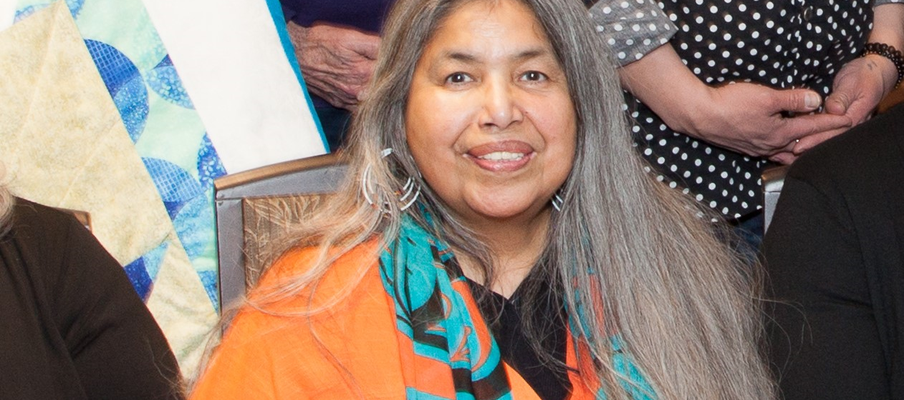Understanding the Role of Helper - Important to Indigenous Communities

Knowledge Keeper kehtê-aya Linda Young says that, understanding why some words don’t exist in the Cree language and why other words do allows for the true understanding of the teachings within a culture.
Linda Young, a Band Member of Onion Lake Cree Nation, a 4th generation Residential School Survivor, is often consulted about Cree protocol and teachings. She speaks from the Plains Cree perspective on many subjects including the importance of language.
Young says it is important to understand the critical differences between being a ‘Helper’ and volunteering. Understanding these differences will contribute to relationship building and lead to understanding why Indigenous peoples may contribute differently to the community.
There isn’t a word for ‘a volunteer’ in the Cree language because the concepts of giving and helping are embedded in every aspect of the culture, language and teachings, says Young. “We’ve always been a people who helped each other. We were raised to practice generosity and kindness; it is our way of life.”
Young’s mother always said, “Don’t wait to be asked to give or to help. You don’t own what you have given, it is no longer yours. You don’t follow where it goes, how it’s being used, and you don’t seek recognition for being the person that shared or gave it away.”
The closest meaning to the word volunteer in english is the word ‘Helper’, but when used in a Cree ceremonial context, the word ‘Helper’ should be capitalized to show respect for that role and the teachings that go along with it.
There is a difference between sacred and secular when it comes to the Cree language. There also isn’t one word for ‘Helper’ in the Cree context. Depending on the type of Helper, there are many different terms and teachings that come along with those roles in the community. The most recognized term is oskâpêwis which refers to a male Elder’s Helper or a Helper at ceremonies. She adds, “owîcihtâsow means somebody who is a Helper of people and onîsôhkamâkêw is an assistant, another variation of the word helper.”
That is why it is essential, she adds, for people who are not Indigenous, to listen to the experience of First Nation peoples and recognize that those experiences are different and have a deeply respected and sometimes sacred value. For example, she noted how SaskCulture staff members listened to her and others who sat on its Advisory Circle, which ran from 2004-2014. She explains how, “They listened, took the advice and suggestions the Advisory Circle shared and took it to heart. I was part of the process and saw the outcome. It’s nice to know that the First Nations and Métis Advisory Circle was more than a statistic for the organization.




